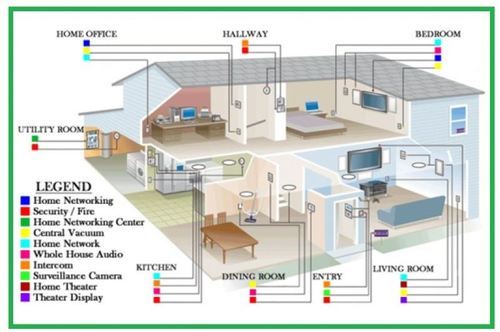The electrical system in your home is largely hidden, this is why most people forget about it and take it for granted. However, like all appliances and devices, an electrical system gets older and starts to suffer from issues.
Of course, in the case of electricity, the outcome of a poorly maintained system can be house fires and electric shocks, both of which can be deadly.
However, in many cases, faults within the electrical system are not always easy to spot. This is why it is recommended that every property have an annual inspection by a qualified and licensed Sydney electrician. They can identify faults and potential issues, preventing you from making any shocking discovery. After all, with most of the electrics hidden it can be difficult to spot the most obvious defects.
Fortunately, there are some techniques you can use.
Turn Off The Power
Cowley Electrician Woodlands tells us that the cardinal rule to avoid getting unexpected shocks is to turn off the power when working on a circuit.
In many cases, it is possible to turn off the power to one circuit only. However, if you choose to do this it is essential that you verify the power is off in your chosen circuit.
This is the best way to avoid getting a shock when investigating or even repairing a circuit.
To verify the power is off you should use a multimeter and insert the probes into the points of the socket or the circuit. The reading should be zero or very close to it. If there is a reading of approximately 230V then the circuit is still live.
Be Observant
Fizzing and buzzing noises suggest there is an issue with the wiring. These are often most noticeable when turning on and off an appliance. Pay attention when you do this as it will warn you there is an issue that needs to be resolved.
Of course, flickering lights also suggest a problem with the electrical circuit. The most common issues are damaged wiring or wiring that has worked loose. This results in the possibility of short circuits and you accidentally touching a live wire. Being observant and dealing with any issue you notice can prevent shocking discoveries.
Insulated Tools
If you do feel the need to work on an electrical circuit you should always use insulated tools. Obviously, the circuit should already be turned off but using a tool where you are not in contact with any metal will reduce the likelihood of you getting a shock.
Consider Capacitors
Capacitors are found in many different types of electronic equipment. If you are taking something apart you need to be aware of these things. They work a little like batteries and can store an electrical charge. A capacitor on a refrigerator or air conditioning unit is designed to give the machine a boost at start-up. That means it has a potentially deadly charge which can still be released if the appliance is unplugged. Proceed with caution.
Unplug Second
Finally, it is worth remembering to switch off an appliance before you unplug it. This reduces the likelihood of an electric shock occurring as you unplug the item.

